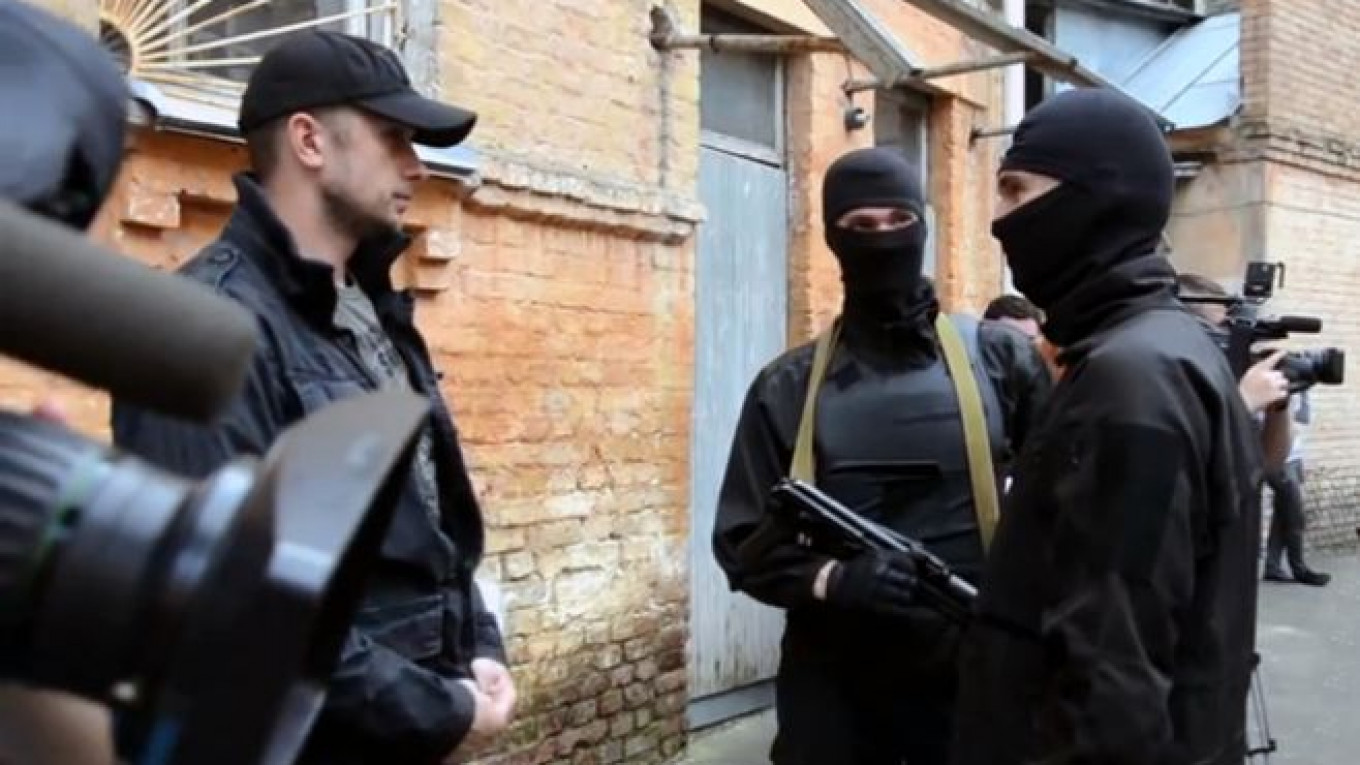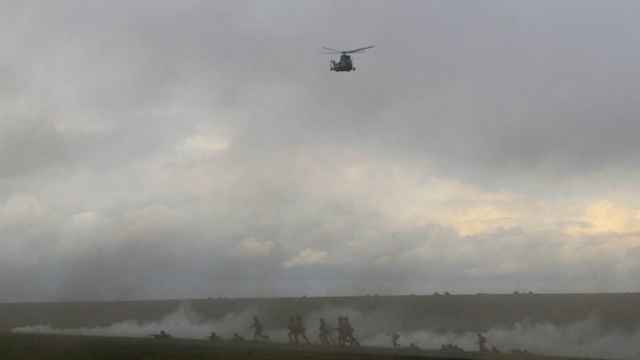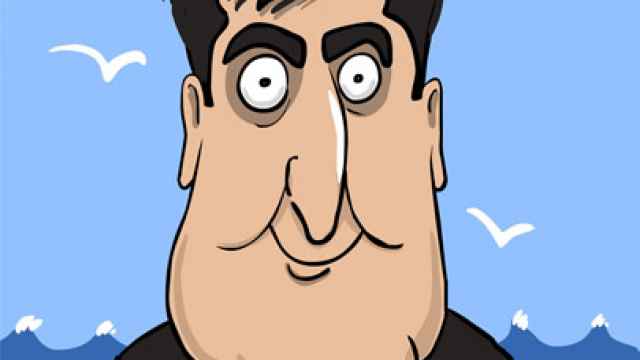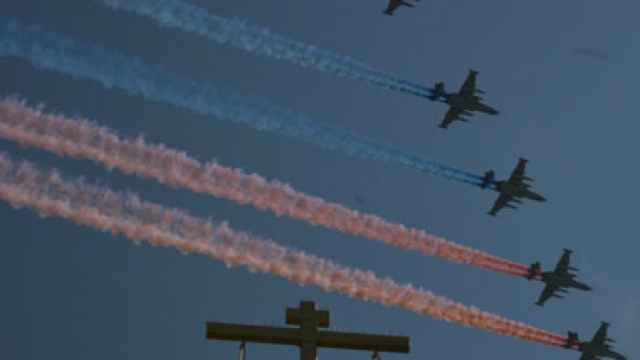Although Ukraine's revolution was overwhelmingly driven by liberal Ukrainians seeking to join Europe, the Maidan movement has included some troubling elements: a small but vocal collection of extreme Ukrainian nationalists. The United States has largely overlooked this to date — but that recently changed.
The U.S. House of Representatives unanimously passed an amendment to the U.S. military budget prohibiting training and support for the extremist paramilitary Azov battalion. Congressman John Conyers did not mince words, stating, "I am grateful that the House of Representatives unanimously passed my amendments last night to ensure that our military does not train members of the repulsive neo-Nazi Azov Battalion."
Many Ukrainians cried foul at the House's action. The Azov issued a statement expressing "outrage" at the decision, while Anton Gerashchenko, an aide to Ukraine's Minister of the Interior Arsen Avakov, helpfully suggested that U.S. intelligence might want to look into Conyers' associations.
But Ukrainians should not be surprised at Congress' action. The Azov is the military wing of the Social-National Assembly of Ukraine (SNA), a party founded by avowed white supremacist Andriy Biletsky. Biletsky's views are troubling to say the least.
In a 2010 article, Biletsky himself outlined his beliefs, writing that "From the mass of individuals must arise the Nation; and from weak modern man, Superman. … The historic mission of our Nation in this watershed century is to lead the White Races of the world in the final crusade for their survival: a crusade against Semite-led subhumanity."
The Azov's logo is an inverted Wolfsangel, which was a widely used symbol in Nazi Germany, and many members of its members appear in photographs with the Nazi swastika in the background while giving the Hitler salute.
You would imagine the post-Maidan government would disavow such a group — but you would be wrong. As if to rebuke Conyers, politician and businessman Arsen Avakov and Secretary of the National Security and Defense Council Oleksandr Turchinov just awarded soldiers of the Azov medals in a 30-minute ceremony in the city of Mariupol.
Indeed, the Azov enjoys the enthusiastic sponsorship of Avakov himself, and he aggressively defended the Azov recently, describing the Wolfsangel as "part of the city emblem in many European cities," stating "anyone who's going to tell me that these guys preach Nazi views, wear the swastika and so on, are bare-faced liars and fools."
Avakov is not the only one to downplay the revolution's extremist elements. In their zeal to resist the Russian-sponsored war on Ukraine, even many Euromaidan activists overlook or play down nationalist elements within the Maidan movement. As Volodymyr Ischenko, deputy director of the Center for Social and Labor Research in Kiev noted in the Guardian newspaper, "what is striking is that far-right and neo-Nazi views and connections do not seem to be problematic for either Ukrainian officials or mainstream opinion."
The reaction to Western criticism of Ukraine's new law criminalizing criticism of two World War II-era nationalist organizations — the Organization of Ukrainian Nationalists (OUN) and the Ukrainian Insurgent Army (UPA) — which collaborated with the Nazis is a case in point. While the OUN-UPA fought both the Soviets and the Germans, they favored an ethnically homogenous greater Ukraine, and were involved in the Holocaust and the ethnic cleansing of Poles in western Ukraine. Unfortunately, despite overwhelming evidence documented by numerous historians regarding the OUN-UPA's involvement in pogroms and mass ethnic violence, many Ukrainians simply label this "Kremlin propaganda" on the assumption that if Moscow asserts something the opposite must be true.
To be clear, none of this justifies Russia's undermining of Ukraine's sovereignty. Whatever Ukraine's shortcomings, they are minor compared to the increasingly authoritarian regime in Moscow.
Moreover, the Russian-sponsored separatists are not exactly boy scouts either, and in many ways they are far worse. As the Kharkiv Human Rights Protection Group notes, many ties exist between the separatists and Russian fascist or neo-Nazi parties such as the Russian National Unity Party and Alexander Dugin's Eurasian Youth Union. There are also a large number of members of these parties among those fighting with the separatists.
Ukrainians, however, should resist the temptation to counter legitimate Western concerns with the "whataboutism" argument that Russia is worse. Unlike Kiev, Moscow has shown no desire to join Western institutions such as NATO and the European Union, and consequently Ukraine should not use Russia as its standard. The stubborn prevalence of extremist ideology and politicians within post-Maidan Ukraine is very real, and it is high time Maidan supporters of all stripes stop ignoring or downplaying this reality instead of decisively breaking away.
For the first time since Ukraine's independence a consensus to join the West exists. As the House just made clear though, extremists cannot be part of the equation.
Josh Cohen is a former USAID project officer involved in managing economic reform projects in the former Soviet Union. He contributes to a number of foreign policy-focused media outlets and tweets at @jkc_in_dc
A Message from The Moscow Times:
Dear readers,
We are facing unprecedented challenges. Russia's Prosecutor General's Office has designated The Moscow Times as an "undesirable" organization, criminalizing our work and putting our staff at risk of prosecution. This follows our earlier unjust labeling as a "foreign agent."
These actions are direct attempts to silence independent journalism in Russia. The authorities claim our work "discredits the decisions of the Russian leadership." We see things differently: we strive to provide accurate, unbiased reporting on Russia.
We, the journalists of The Moscow Times, refuse to be silenced. But to continue our work, we need your help.
Your support, no matter how small, makes a world of difference. If you can, please support us monthly starting from just $2. It's quick to set up, and every contribution makes a significant impact.
By supporting The Moscow Times, you're defending open, independent journalism in the face of repression. Thank you for standing with us.
Remind me later.







